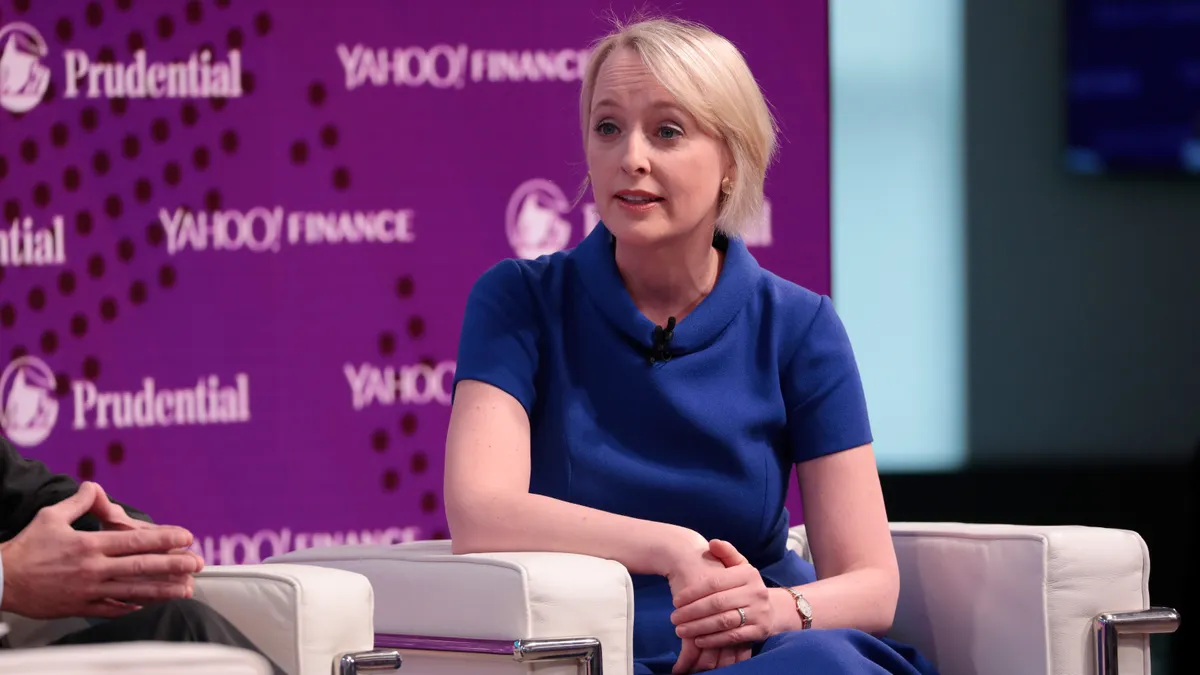Lawyers are generally a competitive lot, ready to push themselves for clients and stretch themselves to succeed — often to the detriment of their mental well-being.
For Jordana Confino, a former federal court law clerk who is now an adjunct law professor at Fordham University, success meant “throwing myself 150% into my work at the exclusion of basically everything else” to always be “the hardest working, most productive person in the room.”
That approach eventually stopped working, leading Confino to “a real breaking point in every sense of the word,” she said on Oct. 22 in an Axiom webinar on “leveraging positive psychology for greater well-being, resilience and performance.”
Many lawyers view success as a matter of happiness coming with milestones: a job offer, winning an important case or a certain income level. But whatever goals a lawyer may be chasing — money, prestige, a promotion — “reaching external goals is never going to bring us those internal feelings of satisfaction and contentment,” Confino said.
Confino describes the career rat race as typically resembling the following: Work harder, earn more money, buy more things, repeat. This cycle can leave overworked lawyers stretched thin mentally and emotionally, burned out in their jobs, depressed and turning to risky coping mechanisms.
To help address the mental health issues many lawyers experience, Jonathan Baum, a securities lawyer, launched Avenir Guild, an online platform to connect legal professionals with resources.
Baum, a solo practitioner in New England, created the portal and announced its debut this month, aligned with the World Health Organization’s annual “Mental Health Day” on Oct. 10. The National Alliance on Mental Illness also has its annual awareness week and health screening campaign in October.
The portal is aimed at corporate and government in-house counsel, law students, lawyers in private practice, affinity groups, bar associations and other legal organizations, and is tailored to various career stages, Avenir Guild said.
Services include career counseling, business development support, life coaching, mentorship “and other resources to elevate skills, expand networks and promote well-being in the legal profession,” according to the company. Avenir operates as a monthly subscription and plans to soon begin offering coaching for a fee.
“During my over 40 years of practice, I’ve watched the legal profession devolve from a collaborative model that served all constituents, including clients, to an eat-what-you-kill dynamic in which clients are prey, salaried lawyers are burning out, and partnership is a shadow of its former promise,” Baum said in a statement to Legal Dive.
Baum said he found “a pervasive atmosphere of anxiety. In sum, the time is ripe to ask whether the current law firm business model is serving its constituents, lawyer and client alike.”
Confino advocates for her clients to follow a “Perma+V” model for mental health and well-being:
- Positive emotional regulation
- Engagement
- Relationships
- Meaning
- Achievement
- Vitality
Positive emotional regulation can be difficult as people focus on risks and potential negative outcomes than they do on the positive, a brain response that “helped to keep us alive” in humanity’s earliest days, Confino said. Yet today this negativity bias is merely “providing needless stress and preventing us from capitalizing on positive emotions,” she said.
One “highly simple strategy” for nurturing one’s relationships, both personal and professional, is to embrace vulnerability and be open to others, Confino said. “I know that vulnerability is basically a dirty word in the legal profession,” she added.
Another area that can debilitate mental well-being is how viciously many people, particularly hard-charging attorneys, beat up on themselves over mistakes or other failures, Confino said. A “softer approach” in how you consider and address yourself will reap positive results.
“Replace your inner-critic commentary with something you might suggest to a colleague,” Confino said.
In terms of meaning from work, many lawyers never consider if their personal values are aligned with those of their practice, firm or employer. “So many people get so far in their careers without ever stopping to think (about) what their values are,” she said.



















